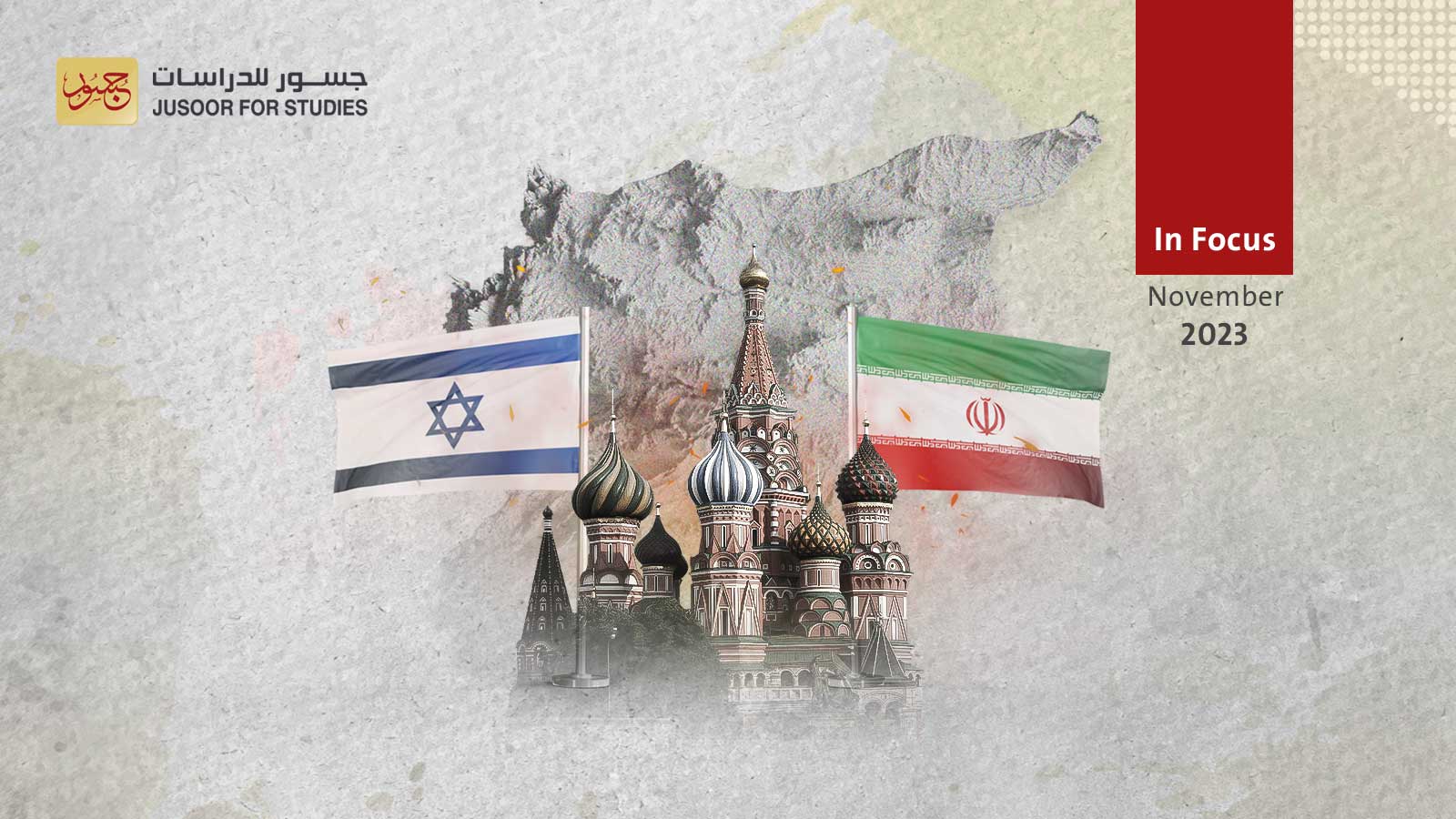Russia Navigating the Escalation between Israel and Iran in Southern Syria
Russia has restarted its military patrols in the southern stretches of Syria, reigniting a presence that had paused for more than a year. On the last day of October, Russian forces were seen patrolling, their route skirting the edges of territory under occupation, threading through the landscape south of Quneitra, between the towns of Al-Ma'laqa and Ghadeer al-Bustan.
The patrol's route, since the beginning of last month, has been witnessing nocturnal military movements suspected to be conducted by Iranian militias. It appears they are capitalizing on Russia's preoccupation with the Ukrainian conflict, which is overshadowing Moscow’s commitments in southern Syria. Alternatively, it might be that Russia is deliberately overlooking these movements, biding its time to reassert its significance as a mediator and guarantor of stability and security in the strategically sensitive borders connecting Syria with Lebanon, Israel, and Jordan.
Indeed, Russia’s resumption of patrols in the region signals its intention to step into the role of mediator to curb the military escalation between Israel and the Iranian militias across the Syrian front. Notably, Russia has previously acted as a guarantor for de-escalation in the southern region as one of the outcomes of the Helsinki presidential summit with the United States in 2018, and the tripartite security summit that brought together Israel, the US, and Russia in occupied Jerusalem in 2019.
In fact, there are several factors that enhance Russia's chances of playing the role of mediator and guarantor to prevent the Syrian front from sliding into an uncontrolled war or escalation between Israel and the Iranian militias, the most prominent of which are:
- There's a growing buzz that the West and Israel are keen to kickstart the old 'de-escalation’ deal in Syria's southern corner. This pact was all about getting Iranian-backed groups to pack up and get some distance from the Israeli and Jordanian lines. What's got everyone talking is that Russia still has its hands on the military joystick down south. They're the ones who can shuffle troops around, keep the peace with patrols, and put a leash on those sky-guarding missile systems. All this gear and maneuvering is key to keeping the Iranian militias from playing fast and loose near Israel and Jordan's doorstep.
- The West and Israel have a clear-cut game plan to box in the battlefield within Gaza's walls. Taking out Hamas tops the Israeli military's hit list, and that's no walk in the park. It's a tough nut to crack, which means all the muscle and the brainpower have got to focus on this single front. So, here's Russia, playing its cards close to the chest, hinting it can keep the Syrian side out of the fray. And why? Maybe it's playing the long game, hoping this move might deal them a winning hand in the high-stakes bargaining game with the West, especially when it comes to the Ukrainian standoff and other big-ticket issues.
The war in Gaza has tossed Russia a lifeline, giving it a shot to dial down the Western heat over Ukraine and to strut its stuff again as a major player on the Syrian stage. It's flexed its muscles, showing it can turn the heat up or cool things down in Syria at will, playing the escalation thermostat like a pro.
Wrapping it all up, it seems Russia's taking it easy, creeping along on the Syrian front to stamp its mark and make the most of its regional presence. It's playing a careful game, factoring in the hefty Western military and financial backing for Israel, which could end up trimming down the war chest for Ukraine. And Russia's betting on this: A continued or blown-up conflict in the Middle East is a way heftier bill for Western interests there than any drama unfolding in Europe.








